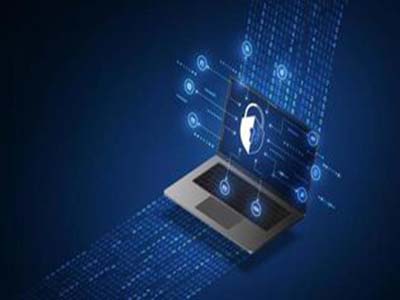Redback Council is the site of Cyber Security and Forensics.
REDBACK IT SOLUTIONS PVT LTD
No 05/X2, Hari Om 2nd Street, Phase 3, Sathuvachari, Vellore 9
info@redback.in
PRINCIPLES OF E-BUSINESS SECURITY
Innovations in technology and communications have allowed businesses to operate globally like never before.
E-BUSINESS SECURITY CONSERNS
The Internet can seem like an entrepreneur's dream come true. The Web offers instant access to millions of consumers around the world and the ability to set up a virtual store, which can limit start-up costs. While the Web does offer a powerful platform for launching new ventures, e-businesses are subject to a variety of unique security concerns.
Viruses and Other Malware
E-businesses count on their Web servers and computers to run smoothly to keep business humming along. Computers that communicate with other devices on the Internet have the potential to download malicious software like computer viruses, worms and other malware that can inhibit a machine's ability to function properly. Malware can potentially result in data loss or the need for maintenance, both of which can cost e-businesses time and money. Malware can also impair customers' ability to use their own computers and access e-business sites. According to Consumer Reports, malware cost consumers about $2.3 billion in 2010.
Software Bugs
The term software bug sounds similar to a virus or worm, which are themselves types of malicious programs, but it means something different entirely. A software bug is simply a mistake or oversight in a computer program or website coding that makes the site or program behave in an unintended way. A bug could result in something relatively benign, like minor aesthetic errors on a website. On the other hand, a bug could potentially cause major problems like site crashes and allowing users access to data that they are not supposed to see.
Active Malicious Threats
While malware can passively infect computers, outside parties can also actively attack web companies. An e-businesses usually lets users interact with a website, possibly by registering for an account and submitting various forms to the business's web server. Experienced computer users may be able to exploit weaknesses in a website to gain access to or "hack" into data that they are not supposed to be able to access. Hackers can potentially steal information like customer names, credit card numbers and passwords, or they may inject malicious code into a website that causes data loss. For example, Sony's PlayStation Network was the victim of a major hacking operation in 2011 that resulted in the theft of millions of users' personal information. Malicious users may also pretend to be trusted authorities or friends in an attempt to trick employees or managers into divulging sensitive information. This method of stealing data is called "phishing."
Physical Data Theft
Most of the threats to e-businesses come through the Internet itself, but businesses can also be subject to physical data theft. If a thief steals the physical hardware that a company uses to conduct business, such as hard drives or Web servers, he may be able to recover confidential information. Since there are several ways e-businesses can potentially lose important data, it is important to make backup copies of data on a regular basis and ensure that physical plants are secure.
Wireless and Mobile Security
Many businesses use wireless Internet connections and mobile devices to access the Web. Wireless networks present a security hazard, since outside users can attempt to connect to a wireless network, allowing them to potentially eavesdrop on communications. Securing a wireless network with a password can make it more difficult for outside users to connect to the network and access sensitive information, but a wireless connection is not as secure as a wired connection, even if it has password protection. Mobile devices can be a security concern both because they use wireless communication and because they are easy to misplace.
Security Issues in E-Business
Some of the common security threats you may come across

Malware : Malware is short for "malicious software." Wikipedia describes malware as a term used to mean a "variety of forms of hostile, intrusive, or annoying software or program code." Malware could be computer viruses, worms, Trojan horses, dishonest spyware, and malicious rootkits.

Computer virus : A computer virus is a small piece of software that can spread from one infected computer to another. The virus could corrupt, steal, or delete data on your computer-even erasing everything on your hard drive. A virus could also use other programs like your email program to spread itself to other computers. Threat, a computer virus is a program written to alter the way a computer operates, without the permission or knowledge of the user. A virus replicates and executes itself, usually doing damage to your computer in the process

Spam Spam in the security context is primarily used to describe email spam -unwanted messages in your email inbox. Spam, or electronic junk mail, is a nuisance as it can clutter your mailbox as well as potentially take up space on your mail server. Unwanted junk mail advertising items you don't care for is harmless, relatively speaking. However, spam messages can contain links that when clicked on could go to a website that installs malicious software onto your computer.

Phishing : Phishing scams are fraudulent attempts by cybercriminals to obtain private information. Phishing scams often appear in the guise of email messages designed to appear as though they are from legitimate sources. For example, the message would try to lure you into giving your personal information by pretending that your bank or email service provider is updating its website and that you must click on the link in the email to verify your account information and password details.
LET'S WORK TOGETHER
AND MAKE THE NEXT BEST PROJECT
CONTACT INFO
No: 05 / x2 , Hari Om 2nd Street, Phase III, Sathuvachari, Vellore, Tamil Nadu 632009
+(91) 818 998 5559
+(91) 818 998 5551

